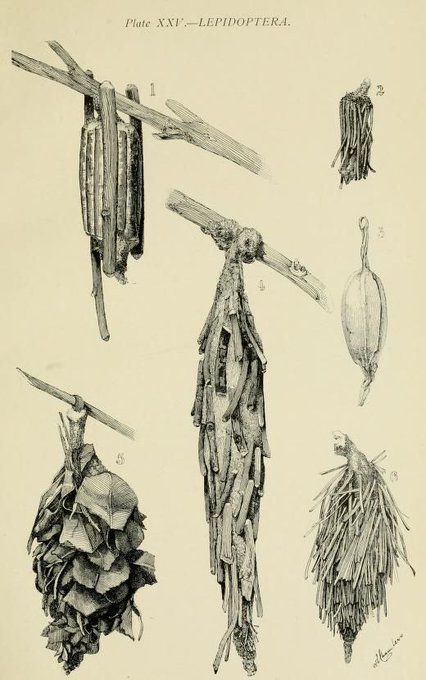ArthropodのTwitterイラスト検索結果。 404 件中 19ページ目
Our penultimate talk is by Marcela Randau @NHM_London on #microCT #imaging to investigate #insect & other arthropod body shape evolution #entomology
Kerygmachela is an early arthropod that lived during the Cambrian period. They had 11 pairs of lateral lobes for swimming.
(Credit: deviantart/Achaeopteryx)
In which I conduct an artistic exercise and discover why cartoon arthropods have human faces.
Friend for Skappbeetles, 8th #GhostOfATale illustration.
Young Silas and his friends-arthropods... They can't eat corn porridge, but they clearly appreciate his attention.
In the background situation is much more tense.((
Sanctacaris was a marine arthropod from the Middle Cambrian. It grew to almost a metre long.
(Credit: shikhar09)
With the excess of viral materials overflowing from the Incineration Disposal Plant, creatures in the ground around Raccoon City became secondary infectants. This includes the Grave Digger, which started off life as an unknown arthropod. #ResidentEvil
1930 Arthropodes antique print butterflies bugs lobsters Larousse antique french book scrapbooking https://t.co/rdHIwzHC1r #Etsy #sofrenchvintage #Larousse
@bogmood I favor the Eurypterids! They were giant fresh water Arthropoda that ruled the streams and listed with the antediluvian might of their terrible pincers!
One of my biggest "paleoart pet peeves" is when trilobites are reconstructed as if someone just dropped their chocolate-brown fossils right onto the seafloor. If living arthropods are any indication, they were likely very diverse in color and patterning! #paleoart
Don't forget to stop & smell the Chocolate Lilies this #ChocolateWeek. They smell divine - like chocolate! Pic: Australia's Goldfields Chocolate-Lily (Arthropodium strictum) from Curtis's Botanical Magazine (1884) https://t.co/FRaMjnMKsa Via @mobotgarden @BioDivLibrary #BHLCurtis
Inktober 10-14-18 #Inktober #Inktober2018 Speedball 512 nib 6 X 8 inches #sciart #art #artist #gawoski #arthropod #insect #grub #larva #larvae #ink #inkdrawing #linedrawing #magenta #worksonpaper
Pterygotus was a gigantic arthropod that could grow to 2.3 metres long! They lived during the early Silurian-Devonian period. They had a pair of large eyes & a smaller pair in the centre of their head.
(Credit: Olof Helje)
Next up in the #extinct series from @animalalphab: K for #Kryptops!
The Krytops was a theropod dinosaur that lived in the Early Cretaceous.
#animalalphabets #animalalphabet #arthropods #scbwi #kidlitart #childrensbooks #digitalillustration #vectorart
The beautiful structures made by Australian case moths. From "Australian Insects" by Walter Wilson Froggatt, 1907. #FaggotCaseMoth #SaundersCaseMoth https://t.co/QAF6p2aKL9 via @BioDivLibrary @ncsulibraries #Lepidoptera #SciArt #BHLarthropod
Today's critter is Jaekelopterus, a "sea scorpion", a group of arthropods that's actually closer to horseshoe crabs than scorpions. Jaekelopterus lived in freshwater and is possibly the largest arthropod ever found, alongside other giants like the millipede Arthropleura.
Acutiramus is an extinct sea scorpion that emerged in the Late Silurian. These gigantic arthropods reached 2 metres in length & had pincers that were 5 centimetres long!
Hyphalosaurus was a freshwater aquatic reptile from the Early Cretaceous. They were 80 cm long & had a small head with needle-like teeth. Its diet consisted of small fish & arthropods.
(Credit: hyrotrioskjan)















































